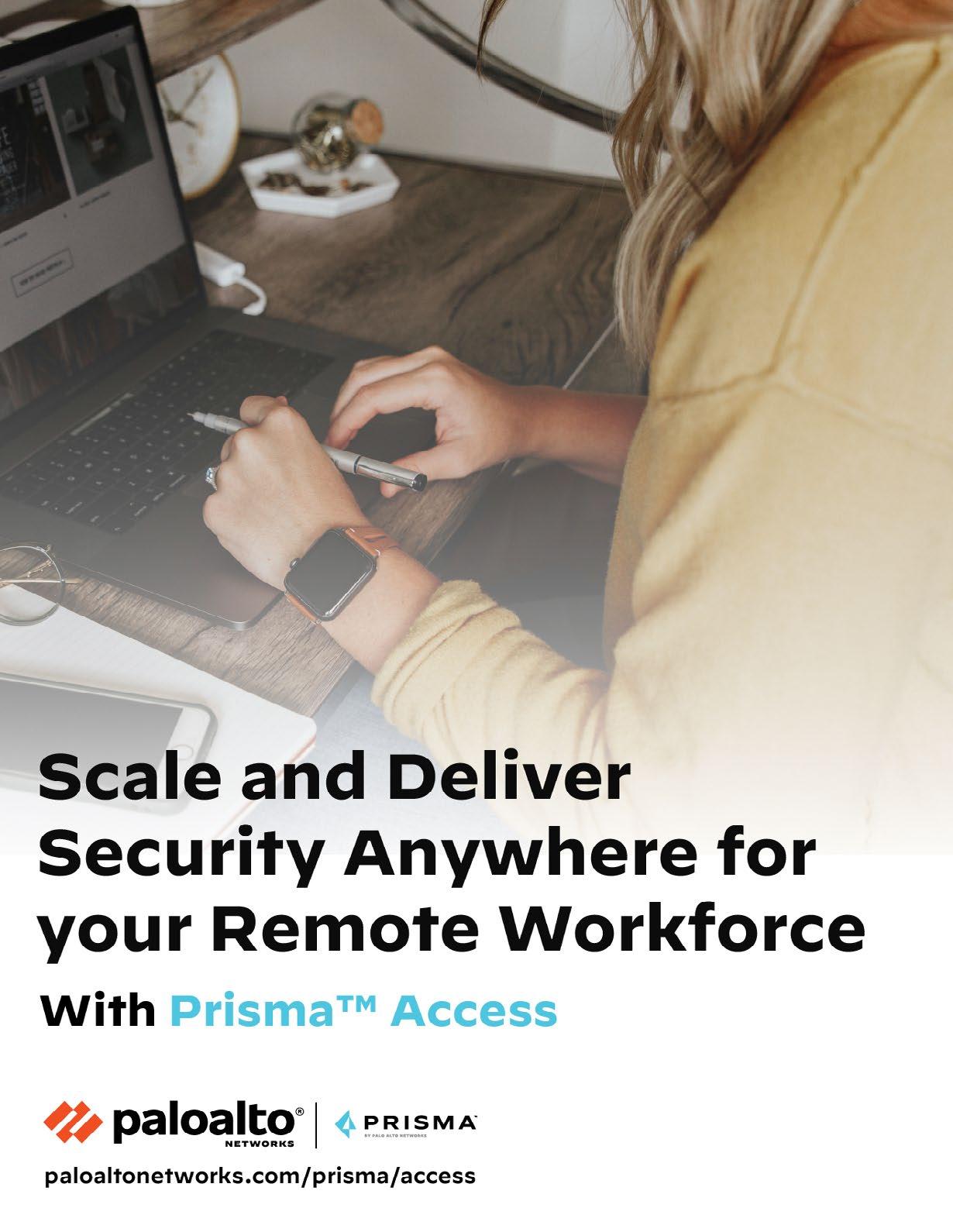
2 minute read
Physical Security in the Digital Era
Government during the pandemic has transcended into the digital world. So thankfully, we really don’t have to follow the same in-office safety protocols anymore, right? Actually, wrong. In our new remote/hybrid state of work, physical security still matters – maybe more than before. Webcams and shared devices put your personal and work information in reach of outsiders. And as home and work lives blend, you’re now the keymaster for your own privacy.
Quiz
Advertisement
Answers are on the following page. Source: FTC
1. Promoting physical securing includes protecting ...
A. Only paper files
B. Only paper files and any computer on which you store electronic copies of those files C. Only paper files, flash drives and point-of-sale devices
D. All the above, plus any other device with sensitive information on it
2. True or false: Paper files that have sensitive information should be disposed of in a locked trash bin immediately.
3. True or false: When you hit the “delete” key, that means a file is automatically removed from your computer.
4. True or false: Only people with access to sensitive data need to be trained on the importance of the physical security of files and equipment. 5. True or false: Keeping your router’s default name will help security professionals identify it and, thus, help protect your network’s security.
6. True or false: Before connecting remotely to the agency network, your personal device should meet the same security requirements as agency-issued devices.
7. Which of the following describes the best way to make sure you are securely accessing the agency network remotely?
A. Read your agency’s cybersecurity policies thoroughly B. Use VPN when connecting remotely to the agency network C. Use unique, complex network passwords and avoid unattended, open workstations D. All of the above
Answer Key
1. D. Promoting physical security includes protecting sensitive information in paper files and on hard drives, flash drives, laptops, point-of-sale devices and other equipment.
2. False. Always shred documents with sensitive information before throwing them away.
3. False. “Delete” alone does not actually remove a file from a computer. Use designated software to erase data, especially before you donate or discard old computers, mobile devices, digital copiers and drives.
4. False. Everyone needs to have strong physical security practices, and everyone should also be trained on what to do if equipment or paper files are lost or stolen, including whom to notify and what to do next.
You can find more at FTC.gov/DataBreach.
5. False. Changing your router’s default name and preset password can help protect your router from hackers.
6. True. When connecting remotely to the agency network, your device should meet the same security requirements as agency-issued devices that connect directly to the network.
7. D. Secure remote access requires all of these steps.
What’s Wrong With This Image?
Something’s going on here. Can you spot what’s wrong?
Cartoon Channel
Tax Form
Here’s a freebie: Change the default password on your home router. Cybercriminals are like car thieves, and default passwords are like unlocked cars. The better your unique password, the harder it will be for a criminal to break in.
There are six more problems.
Update required!
Answers are on Page 26.







